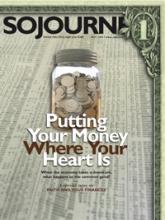Easter, Ascension, and Pentecost are not three distinct seasons, but rather celebrations of and grapplings with three aspects of Christ’s resurrection and what they mean about Jesus, God, Spirit, and us.
Jesus’ friends and companions were adamant. Jesus had died, was brutally executed as a criminal and disruptor, but he continued to live. They saw him, received messages from him, and were different because of it. Jesus was with them individually and in community.
Easter did not just happen one morning 2,000 years ago, and it does not happen one Sunday a year; it happens over and over again through the life of the church and the life of those who would follow Jesus. It happens after the chocolate and jelly beans are gone; it happens when we know that love and hope have died. Then and now, powers and principalities say no to resistance, but God says yes to life. Death does not have the last word. Each new Christian generation has Easter experiences that demand the absurd proclamation, “He is alive!”
This month’s reflections look at passages from Acts, Psalms, Isaiah, and Genesis. As we read both the texts and the resurrection-filled world around us, I have focused on bodies, laughter, and the earth itself—lest we become, as my mother often quoted, “so heavenly minded we are no earthly good.”
Laurel A. Dykstra is a scripture and justice educator in Vancouver, British Columbia. She is author of Set Them Free: The Other Side of Exodus. www.laureldykstra.com
May 4
Slapstick Comedy
Acts 1:6-14; Psalm 68:1-10, 32-35; 1 Peter 4:12-14, 5:6-11; John 17:1-11
Read the Full Article
